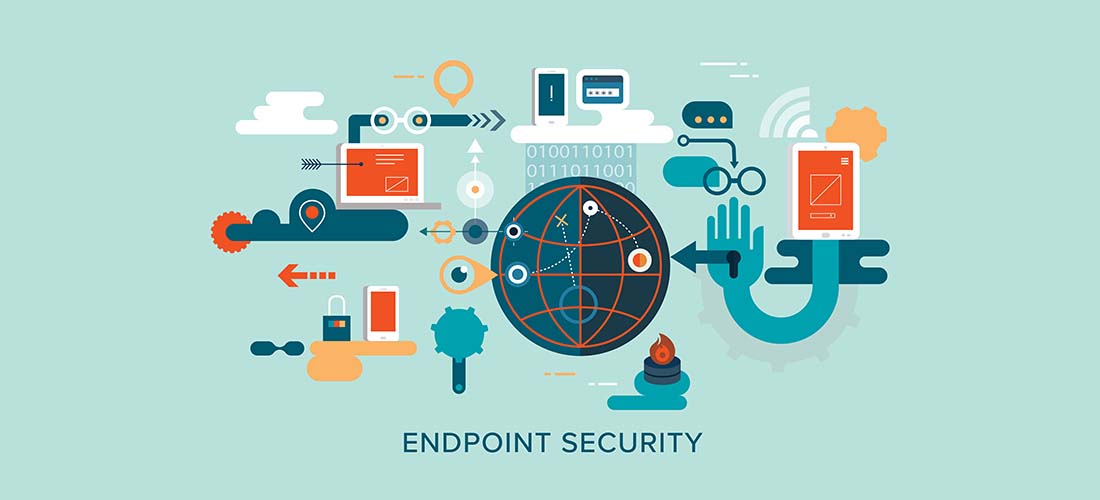In the modern landscape of digitised business operations and dispersed work settings, a substantial volume of company data finds its home within employees’ endpoint devices. While this setup facilitates convenient data access and processing for employees, it also exposes enterprises to a range of risks if these devices are compromised, lost, or fall into malicious hands. The potential outcomes encompass data loss and its severe implications, such as the leakage of sensitive information, regulatory penalties, and lasting damage to reputation. Navigating this data-driven tightrope requires not only technological solutions but also a cultural shift towards proactive data stewardship across the organizational spectrum.
Outlined below are five of the most significant mistakes that must be diligently sidestepped to avert the peril of endpoint data loss and ensure enterprise data protection.
- Neglecting Endpoint Backup Solutions: The repercussions of system failures, hardware glitches, malware onslaughts, or accidental deletions can be disastrous for a business, causing data loss with far-reaching consequences. The implementation of a robust endpoint endpoint backup solution serves as a crucial safeguard. This mechanism facilitates the restoration of data to a previous state in the event of endpoint compromise. Noteworthy features include immutable backups, anomaly detection, and notification mechanisms, data encryption during both transit and storage, geo-location tracking, remote data wipeout capabilities, compression, deduplication, and simplified restoration through a unified management dashboard coupled with comprehensive reporting.
- Underestimating Workforce Awareness about Data Significance and Loss Impact: While individuals might profess comprehension regarding the value of their endpoint data, the genuine magnitude of this understanding might only truly materialise when data loss strikes. In such instances, employees find themselves bereft of the critical information essential for their roles. Subsequently, they grapple with recreating data or maneuvering around the setback, inevitably diverting their focus from their core responsibilities. The repercussions of endpoint data loss may not necessarily cripple business operations, but they unquestionably erode workforce productivity. To counter this, regular and consistent efforts to educate users about data importance and sound security practices become indispensable.
- Overlooking Workforce Education on Backup Protocols: Equipping employees with a clear comprehension of backup significance is a non-negotiable aspect. The fragility of data becomes evident when employees falter in performing backups or lack the requisite know-how. Often, employees inadvertently circumvent backup procedures if they hinder their workflow. It’s incumbent upon companies to diligently elucidate the merits of routine data backups to their workforce and offer them comprehensive guidance on executing these backups effectively. An additional layer of oversight involves monitoring and validating the proper execution of backups, while concurrently fostering employee understanding of backup techniques. To ensure minimal disruption to work processes, opting for an enterprise endpoint backup solution that incorporates scheduled backup functionality is a strategic choice.
The practice of endpoint backup stands as an integral component within an enterprise’s overarching data backup and recovery strategy. Given that these endpoints harbor sensitive data, the implications of its loss encompass not only financial repercussions but also a dent in the company’s standing. Acknowledging the pivotal role played by endpoints in ensuring seamless and efficient business operations, it is imperative for organisations to adopt a proactive approach toward regular data backups. This approach inherently safeguards the continuity of business activities while acting as a potent bulwark against potential reputational harm.
- Failing to Monitor Backup Compliance: Educating the workforce on the importance of backups is not sufficient if companies fail to ensure compliance with backup protocols. It’s imperative to establish mechanisms to verify that backups are being performed properly. Regular checks and validation processes should be in place to confirm the completion and accuracy of backups. This proactive approach prevents situations where incomplete or outdated backups contribute to data loss incidents, ensuring a robust and dependable data recovery mechanism for any unforeseen contingencies. Maintaining a continuous cycle of review and adjustment further solidifies the organization’s ability to swiftly counteract potential data loss scenarios while bolstering overall data governance.
- Underestimating the Evolving Threat Landscape: The realm of cyber threats is in a state of constant flux, with attackers continually refining their strategies. Companies must remain on the cutting edge by staying informed about the latest threats and vulnerabilities that could compromise endpoint security and data integrity. Regular security assessments, meticulous penetration testing, and ongoing surveillance are integral to pinpointing and ameliorating latent vulnerabilities within the security framework.
In today’s dynamic business ecosystem, the reliance on technology as a linchpin for operations is more pronounced than ever. While the advantages of this digital transformation are manifold, it concurrently amplifies the vulnerabilities businesses confront in terms of data security. Endpoint devices, spanning from laptops to desktops, have metamorphosed into repositories for mission-critical company information, housing a treasure trove of sensitive data and operational insights. This paradigm shift mandates a corresponding recalibration of focus towards fortifying these endpoints against the ever-looming specter of data loss. Amidst this intricate balance, a proactive approach to data protection becomes the linchpin for a secure and resilient digital future.







